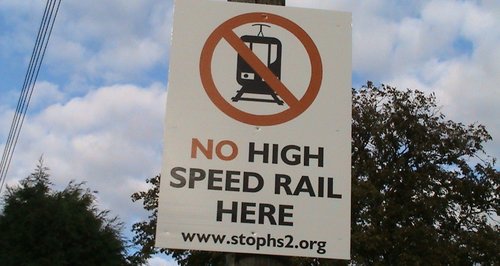Essex: High Speed Rail Bad For Economy?
19 October 2013, 08:47 | Updated: 19 October 2013, 08:51

Areas of the UK including Essex could lose millions of pounds each as a result of HS2, according to previously unseen research.
The more than 50 areas which will be worse off were omitted from the Government-commissioned report when it was published in September, the BBC said.
The full findings of the KPMG study into the business case of the high speed rail route were released following a Freedom of Information request by BBC Two's Newsnight programme.
The chief executive of HS2 Ltd told the programme the figures were unsurprising.
In September the Department for Transport hailed the study - which found the UK economy would be boosted by £15bn a year - and listed the areas which would benefit, including Greater London by £2.8 billion and the West Midlands by £1.5 billion.
But the areas that would lose out have now been revealed, with those worst affected by a drop in economic output including Aberdeen by £220 million, south Essex by £151 million, and Cambridge by £127 million.
The accountants used data from HS2 Ltd's assessment of the direct transport impacts of the scheme, which would connect London to Birmingham and to Manchester and Leeds.
Professor Henry Overman from the London School of Economics - formerly an expert adviser to HS2 Ltd - told the BBC it was obvious that, as some cities, towns and regions reap the benefits of being better connected, other places away from the line will pay a price.
"When a firm is thinking of where to locate, it thinks about the relative productivity of different places, and the relative wages etc," he said.
"HS2 shifts that around."
The chief executive of HS2 Ltd, Alison Munro, said: "What this is showing is that the places that are on the high-speed network... those are the places that will benefit most from high-speed two.
"But high-speed two isn't the only investment that the Government is making. Over the next five years it is planning to spend £73 billion on transport infrastructure."


